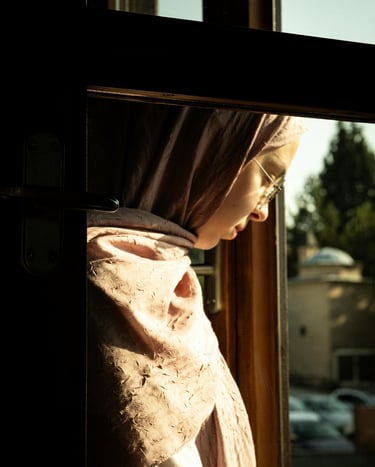The Cost of Silence in the UN
Naima Tahir | Strategic Resilience Specialist.
7/16/20252 min read


The Cost of Silence in the UN
Working within the UN system often demands a careful way of being. You learn to speak cautiously. You measure your words. You avoid saying exactly what you think. Over time, you begin to hold back. You convince yourself that staying quiet will keep you safe. You protect your job by protecting your voice.
This way of surviving becomes a habit. You avoid direct conversations. You notice that speaking up can create problems, while staying silent keeps the peace. You begin to lose touch with your voice. You adjust, you adapt, and you shrink. The values that once felt urgent begin to feel distant.
Then the funding cuts come. After years of self-protection, after all the effort to stay out of trouble, you are let go. Not because you spoke too much. Not because you challenged anything. Simply because your role was no longer funded. And that is when the frustration sets in. You remember the meetings where you stayed silent. The injustice you witnessed but didn’t name. The discomfort you swallowed. You realize that the silence never guaranteed security. It only delayed the harm.
The resentment builds quietly. It’s not only about losing a job. It’s about everything you gave up to stay in it. The energy you spent trying to fit in. The times you chose safety over truth. The moments you wanted to speak but didn’t, because you feared being seen as difficult. You saw how honesty was treated. You watched how those who spoke clearly were described as sensitive, emotional, or unprofessional. You noticed how gossip was safer than confrontation.
This creates a workplace where people carry their frustrations in silence. They vent privately. They avoid saying what they really think. Speaking openly becomes risky. Over time, this silence becomes heavy. It turns into exhaustion.
Some leave by choice. Others are pushed out. Either way, many carry the same weight. They wonder if staying quiet for so long was worth it. They wonder what they lost by keeping their heads down.
For those still inside, there is an important lesson: silence does not shield you from instability or prevent loss. It offers no real guarantees.
And for those who have already left, carry your voice with you. You may have been quiet for a long time, but that silence doesn’t define you. You saw what others were afraid to name. You felt what others refused to say. The fact that you left doesn’t mean you gave up, it means you chose yourself. The fact that they let you go after all the silence, all the effort, all the restraint, only proves that playing it safe was never a guarantee. And that is something to hold onto. Now is the time to live in alignment with your values. To build something honest. To move with clarity. This is no longer about being loud, it’s about being real. Not to blame, but to breathe again.